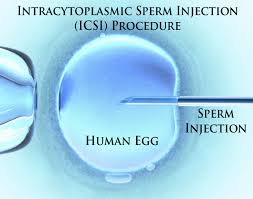What is ICSI and How Effective it is
Intracytoplasmic sperm injection, also known as ICSI, is a highly effective assisted fertilization technique that is micro-manipulative. It is used to tackle infertility due to the malefactor. It offers a high rate of success and lowers the complication risks and reduces the chances of damage to the egg. It is used for the enhancement of fertilization in IVF treatment, by the injection of a single sperm into the mature egg. The fertilized egg, after the injection of the sperm, is transferred to the uterus of a woman.
When is ICSI Performed?
ICSI is done when only a little or no sperm is ejaculated into the semen. The procedure is done to treat infertility in men and sperm that is viable is collected. The sperm from the testicles is considered as they are more likely to fertilize. Sometimes, couples do not experience desired outcomes by alternate IVF. In these cases, ICSI is the practical next step. ICSI technology is employed in around 50% of the IVF treatments in India. It is effective and precise.
Some couples wish to have a genetic screening done on the embryo so that generic diseases can be checked and monitored. When only a single sperm is used for every egg, the screening gets more regulated and reduces the risk of contamination by other sperm.
How effective is ICSI?
ICSI can be highly effective when used with IVF. It improves the effectiveness of sperms in cases of male infertility. This technique has also been known to be successful when the male has few or little sperm or damaged sperm.
What are the Risks Involved with ICSI?
Almost all fertility treatment have some complications or the other. ICSI also includes the same risks that are associated with in-vitro fertilization. The biggest complications associated with ICSI are multiple pregnancies and ovarian hyperstimulation. Most of the male infertility issues are genetic; however, some of them could be due to environmental factors.
There could also potentially be higher chances of birth defects in infants and babies who are conceived through techniques like ICSI. The fertility specialist should discuss these issues and complications in great detail before proceeding with it. Sperm injection is also successful in the reversal of vasectomy. The success of ICSI is also dependent on pregnancy rates and the DNA fragmentation level that is measured by advanced maternal age, semen quality, and comet assay. Sperm DNA damage is also found to affect clinical pregnancies negatively, following ICSI.






No Comments